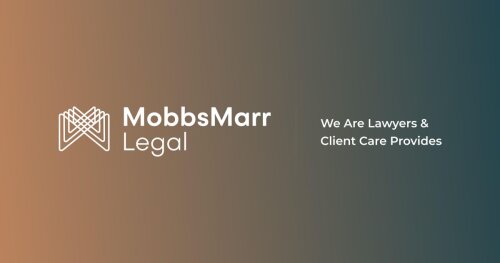Best Foreclosure Lawyers in Sydney
Share your needs with us, get contacted by law firms.
Free. Takes 2 min.
Free Guide to Hiring a Real Estate Lawyer
List of the best lawyers in Sydney, Australia
About Foreclosure Law in Sydney, Australia
Foreclosure law in Sydney, Australia pertains to the legal processes through which a lender can reclaim a property when the borrower fails to fulfill their loan obligations. This often arises when a homeowner has defaulted on their mortgage payments. In such scenarios, the bank or lender has the legal right to evict the owner and sell the property to recover the outstanding loan amount. These legal processes can be complex and can have significant financial implications for the individuals involved. Hence, professional legal aid should be sought to navigate through any foreclosure-related concerns.
Why You May Need a Lawyer
If you're facing a foreclosure, it's essential to engage a lawyer for multiple reasons. A lawyer can educate you on your rights as a homeowner, negotiate with the lender on your behalf, propose alternatives to foreclosure such as loan modifications, short-sale, or deed-in-lieu. They can also represent you in court if your foreclosure case ends up in a lawsuit. Moreover, a lawyer can provide invaluable assistance in understanding the intricate contracts, finance-related details, and the complex local laws surrounding foreclosure.
Local Laws Overview
In Sydney, Australia, foreclosure laws favour the lenders quite a bit, and they can commence a foreclosure case once you are defaulted. The laws also require lenders to provide borrowers with at least 30 days' notice before proceeding legally. Moreover, the lender can apply for a court order to take possession of the property if the borrower can't repay the loan. Upon granting the order, the borrower typically has 30 days to vacate the property. But the law also provides certain protections to borrowers such as the right to dispute the foreclosure and the right to pay the debt and halt the foreclosure at any time before sale.
Frequently Asked Questions
What is a foreclosure?
Foreclosure is a legal process in which a lender attempts to recover the balance of a loan from a borrower who has stopped making payments, by forcing the sale of the asset used as the collateral for the loan, typically a house.
Can I stop the foreclosure process?
Yes. A borrower can halt the foreclosure process by repaying the outstanding debt before the property sale goes through. Alternatively, you can dispute the foreclosure if you believe there are errors or if the lender did not follow the proper foreclosure proceedings.
What happens if my property is foreclosed?
If your property is foreclosed, you will be evicted and the property will be sold. The proceeds from the sale first go towards the debt, and if any amount remains, it will be passed on to you.
Can I get my property back after a foreclosure?
The ability to reclaim your property after a foreclosure typically depends on whether your state follows statutory redemption laws. In Sydney, Australia, once a property is sold at a foreclosure sale, the ability to redeem or reclaim the property thereafter is significantly limited.
What alternatives do I have to foreclosure?
Alternatives to foreclosure include loan modification, refinancing, short sale, or filing for bankruptcy. It's best to consult with a foreclosure lawyer about these possibilities given your individual circumstances.
Additional Resources
There are various resources available for those facing foreclosure in Sydney, Australia. These include The Department of Housing and Public Works, The Australian Financial Security Authority, National Debt Helpline, and The Financial Rights Legal Centre. These organizations provide useful information, support, and services to those facing foreclosure.
Next Steps
If you're facing the possibility of foreclosure and need legal assistance, first seek advice from a qualified foreclosure lawyer. They can help you understand your options, rights, and guide you through the next steps. It's best to act promptly, to avoid missing out on any opportunities to negotiate or fight the foreclosure.
Lawzana helps you find the best lawyers and law firms in Sydney through a curated and pre-screened list of qualified legal professionals. Our platform offers rankings and detailed profiles of attorneys and law firms, allowing you to compare based on practice areas, including Foreclosure, experience, and client feedback.
Each profile includes a description of the firm's areas of practice, client reviews, team members and partners, year of establishment, spoken languages, office locations, contact information, social media presence, and any published articles or resources. Most firms on our platform speak English and are experienced in both local and international legal matters.
Get a quote from top-rated law firms in Sydney, Australia — quickly, securely, and without unnecessary hassle.
Disclaimer:
The information provided on this page is for general informational purposes only and does not constitute legal advice. While we strive to ensure the accuracy and relevance of the content, legal information may change over time, and interpretations of the law can vary. You should always consult with a qualified legal professional for advice specific to your situation.
We disclaim all liability for actions taken or not taken based on the content of this page. If you believe any information is incorrect or outdated, please contact us, and we will review and update it where appropriate.















